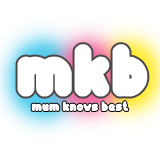Teething
Teething is one of the inevitable hardships that all infants have to endure. Some will sail through it with little more than a grumble whereas others will feel every single little movement and grind and burn of each and every tooth. All 28 of them.
When does teething begin?
.jpg) Although your baby's first tooth can appear anywhere between three and 12 months, sometime in the seventh month is the average time of arrival. Its worth noting that some babies are born with teeth and the movement and signs can come from about 8 weeks.
Although your baby's first tooth can appear anywhere between three and 12 months, sometime in the seventh month is the average time of arrival. Its worth noting that some babies are born with teeth and the movement and signs can come from about 8 weeks.
Signs of teething
Drooling. Fasten on a bib to keep her more comfortable (and cleaner), sometimes worth investing in dribble bibs rather than regular feeding ones, and gently wipe her chin throughout the day to stave off rashes and sores. Pooling saliva may also cause a slight cough or even trigger the gag reflex. A barrier cream on the chin such as Sudocreme can also help
Gnawing. She's not trying to be naughty. Little nips at your fingers, breast (ouch!), or her spoon help relieve the pressure she feels from under her gums.
Crying. Some babies breeze through teething with nary a whimper, while others suffer from a good deal of pain — which they feel compelled to share with you in the form of whining or crying.
Fasting. Since sucking movements can worsen teething pressure or pain, your baby may refuse to nurse or eat, or may nurse briefly and then turn away. Keep at it, and call your doctor if the strike lasts more than a few days.
Waking. Especially when she's working on cutting that very first tooth, your baby may fuss during the night as well as during the day, so be prepared for a little extra cot-side duty for a while.
Doctors disagree on whether diarrhea and fever may also be signs of teething however most mums who have been through it will tell you that abbies often appear to have a cold, very runny nose and sneezing, and runny nappies acompanied with a nappy rash, right before and during bouts of teething. They should pass once the tooth cuts through however always seek medical advice if this persists more that afew days.
How can I help?
Paracetamol and / or ibruprofen can be given when she seems either feverish or in alot of pain. Always read the label and follow the instructions carefully.
traditional teething gels are always handy to have in the change bag. there are many brands and each workd different for each child
Powders can often help and are usually herbal but can be very hard to come by. Astons and Parsons seems to rate highly amongst mums. Similarly Anbsol teething gel has been hailed as a life saver for some.
Amber teething necklaces can reduce inflammation and accelerate healing as teething progresses.
Home remedies : if your child is past 6 months and ok with finger foods, try cutting apple rings, carrot and cucumber sticks and freezing them then let her chew away. Cold flannels, or teething rings from the freezer or even a simple ice cube can make all the difference.
Take a toothbrush with a little teeth gel on and gently, in a circular motion, rub the gums and tray and help ease the breaking through.
It is important to remember that whilst yes it may be frustrating for you, it may be hard waking up several times a night or trying to settle a child who just seems miserable all day, it is much worse for them. It will pass and then it will happen all over again. Remain calm and comforting and if you need 5 minutes, pop them in a safe palce and stand at thr front door. It doesnt last forever

No comments:
Post a Comment